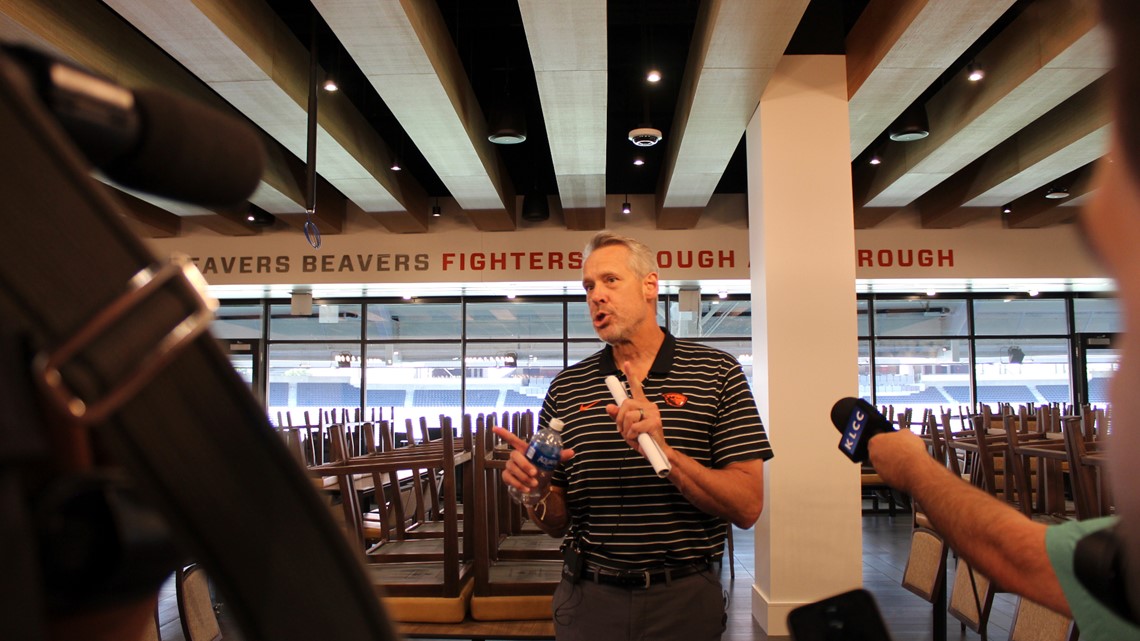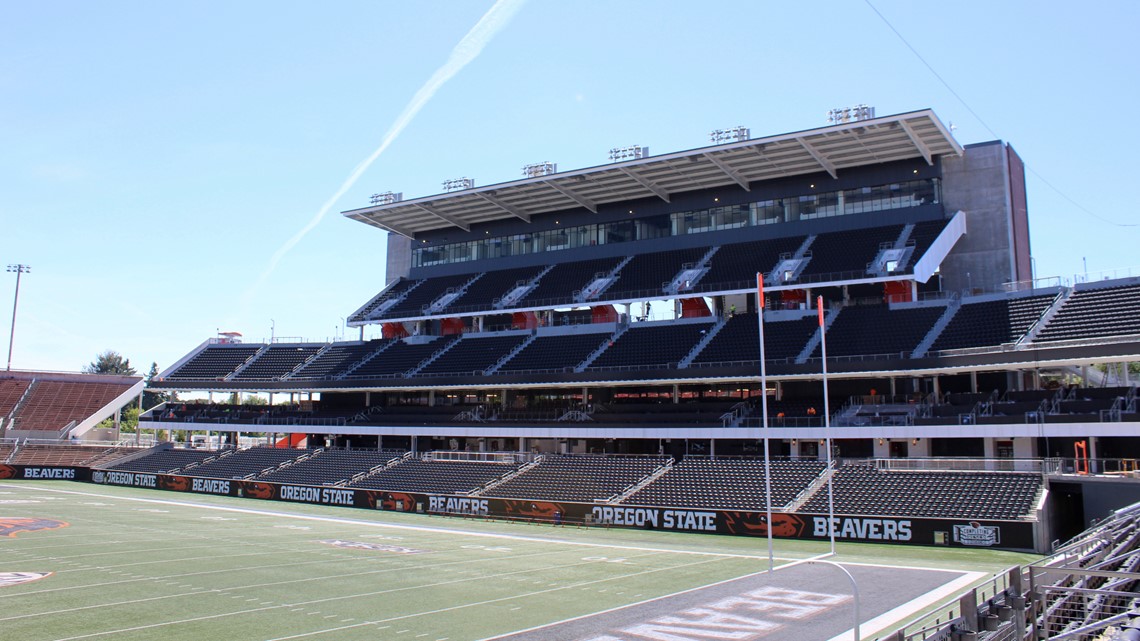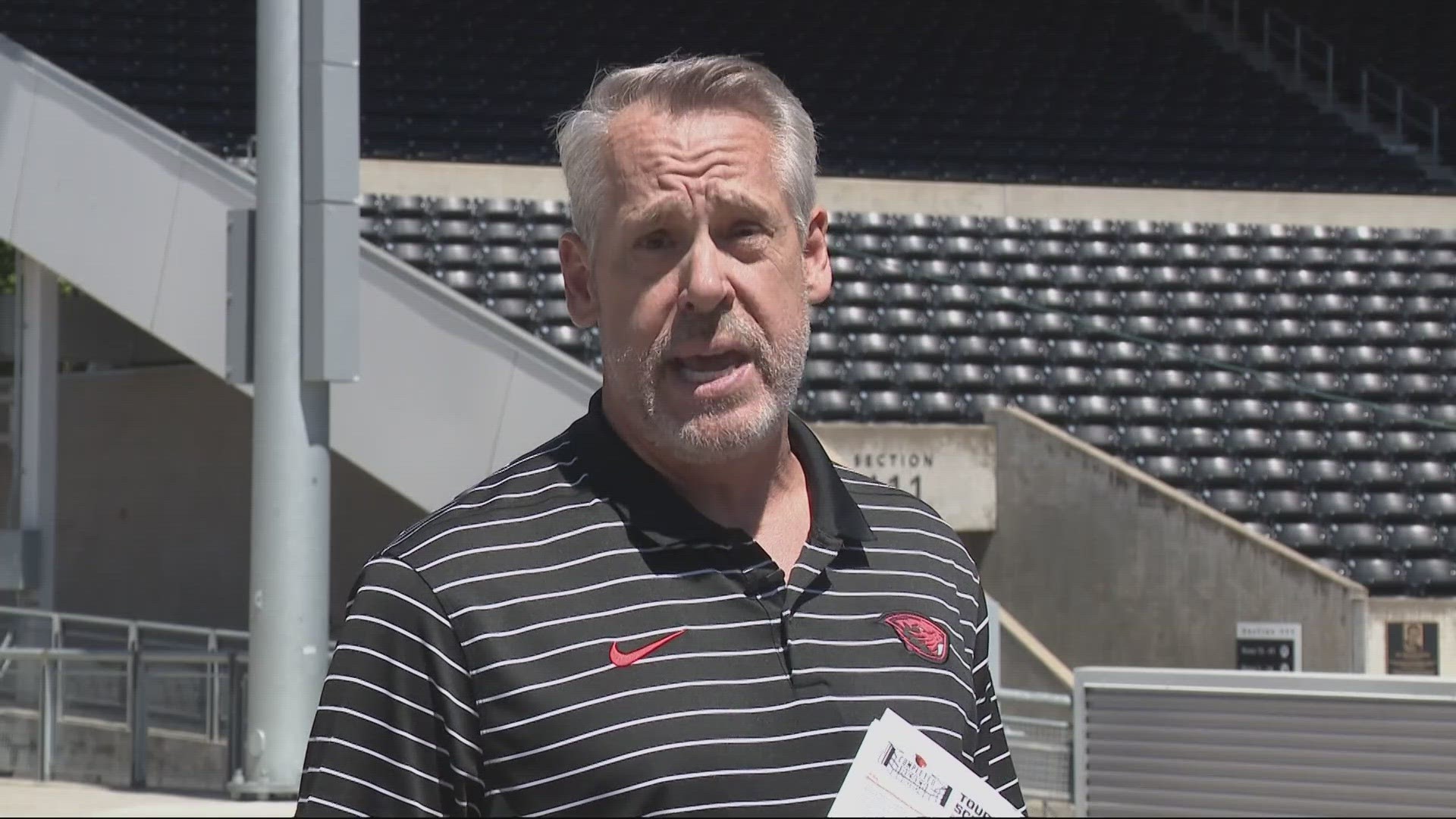CORVALLIS, Ore. — Inside one of the new premium areas at Oregon State's renovated football stadium reads a lyric from the school's fight song.
"Beavers Beavers Fighters Through and Through."
Oregon State is fighting right now. For relevance in a rapidly morphing college sports landscape. For financial certainty. For stability and a place to call home.
"We continue to work 24/7 to put our student athletes in Beaver Nation in the highest and best position we can. And that's all I want to say today," Oregon State athletic director Scott Barnes said Tuesday during a tour of the school's renovated Reser Stadium.


The same is true at Washington State, the land-grant brethren of Oregon State and the other school that, so far, is being left out in the reshuffling of the conference affiliations over the past few weeks.
The Cougars and Beavers appear to be the big losers in the destabilization of the Pac-12 that’s on the brink of collapse. They are the leftovers now stuck searching for a landing spot.
While Washington and Oregon are headed to the Big Ten, Arizona, Arizona State and Utah are bound for the Big 12 and Stanford and California are talking with the ACC, the Cougars and Beavers are still trying to find their own stable ground.
Oregon State and Washington State are tied together in ways beyond their current predicament. They are land-grant universities. They reside in the true college towns of the Pac-12 – Pullman and Corvallis – while the rest of the conference is mostly in major metro locations. While they are major research universities, their campuses exude the small-town feel of community.
With the exception of a five-year span in the late 1950s and early 1960s, Oregon State and Washington State have competed in the premier conference on the West Coast dating to 1917 when the Cougars joined the Pacific Coast Conference.
And in the span of one week that century of history has been upended, creating the current uncertainty for both.
Tuesday was a landmark day for Oregon State, unveiling to the media the massive renovations to Reser Stadium that included the demolition and complete reconstruction to the west side of the facility. The project cost more than $160 million and puts the finishing touches on the stadium that’s been the home to the Beavers since 1953 and has previously been updated in phases.


But as much as Barnes and his staff wanted the focus to be entirely on the new features to the stadium -– its plush premium areas, unique concessions experience, a university wellness clinic and a welcome center to the school –- the uncertainty lingered.
For this year, Pac-12 football will be played inside the roughly 36,000-seat stadium. Beyond that? It’s the question players, coaches, fans and alums are pondering.
“I’m not naïve to not think these guys are reading and wondering and all of that,” Oregon State coach Jonathan Smith said of his team Tuesday. “And as we get information, we’re going to get it to them. But I do feel like the attention to detail from the meetings to the walkthroughs to practice has been really solid. So it’s not a massive distraction taking away from things. At the same time, yeah, they’re interested to see how it plays out.”
Washington State is swimming in the same pool of uncertainty and is already in a financial crunch.
Washington State spent millions in the past decade-plus upping in the infrastructure of its athletic facilities with the expectation that TV revenue would help pay some of those bills. The money from current Pac-12 media rights deal never materialized in the way that was hoped and now the Cougars find themselves facing a potential future with significant financial strain.
Washington State announced in June that it was facing an $11.5 million deficit in the athletic department. And getting left out of the current round of realignment is not going to help that financial picture.
“Wherever we go, we’re going to be a flagship institution of whatever conference that is,” Washington State coach Jake Dickert told reporters on Tuesday.
Back in Corvallis, Barnes did his best to leave Oregon State’s uncertainty back in his office for an hour while showing off all the features of the upgraded stadium. He thanked those that helped make the renovation a reality coming out of the COVID-19 pandemic and tried to look forward as best he could knowing the challenges ahead.
“It’s a great story,” Barnes said of the stadium. “It’s positive news. It’s a bold statement about what Oregon State can do.”
__
AP college football: https://apnews.com/hub/college-football and https://apnews.com/hub/ap-top-25-college-football-poll

